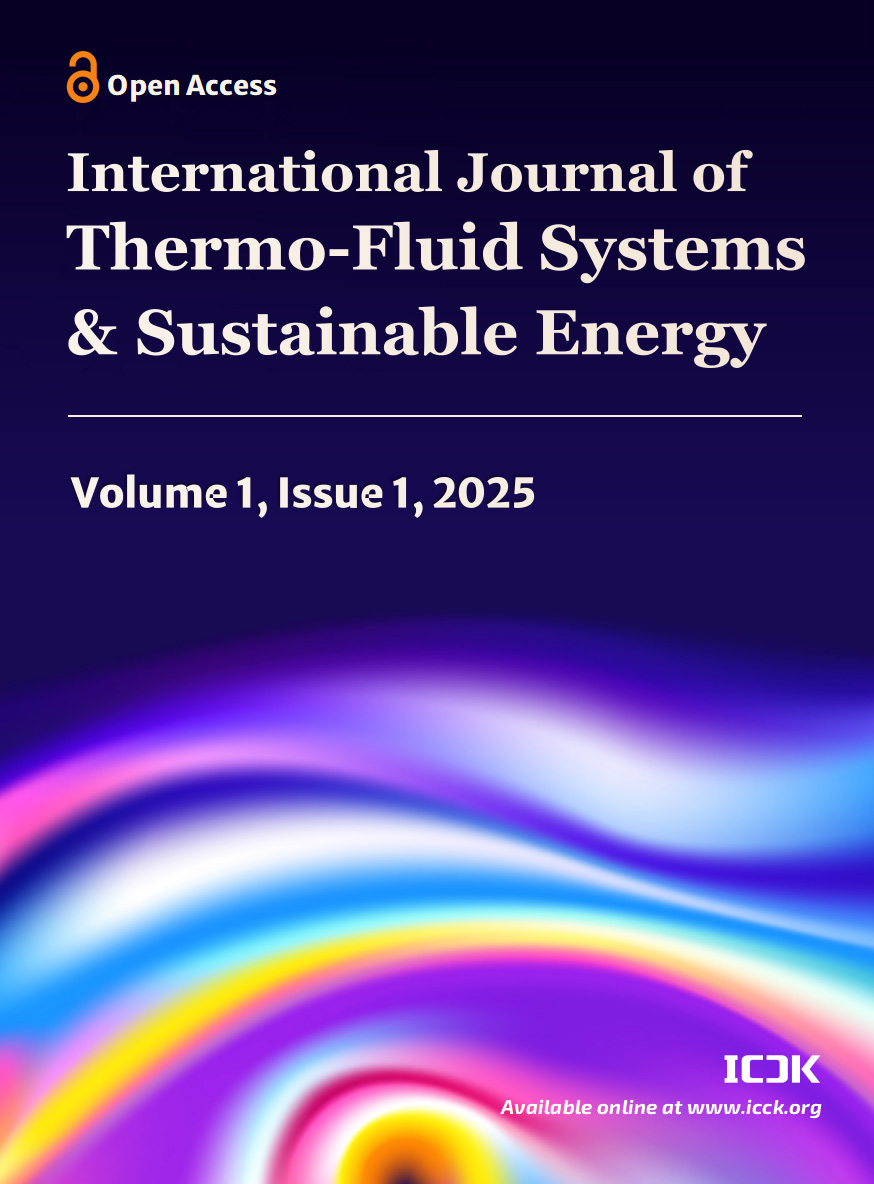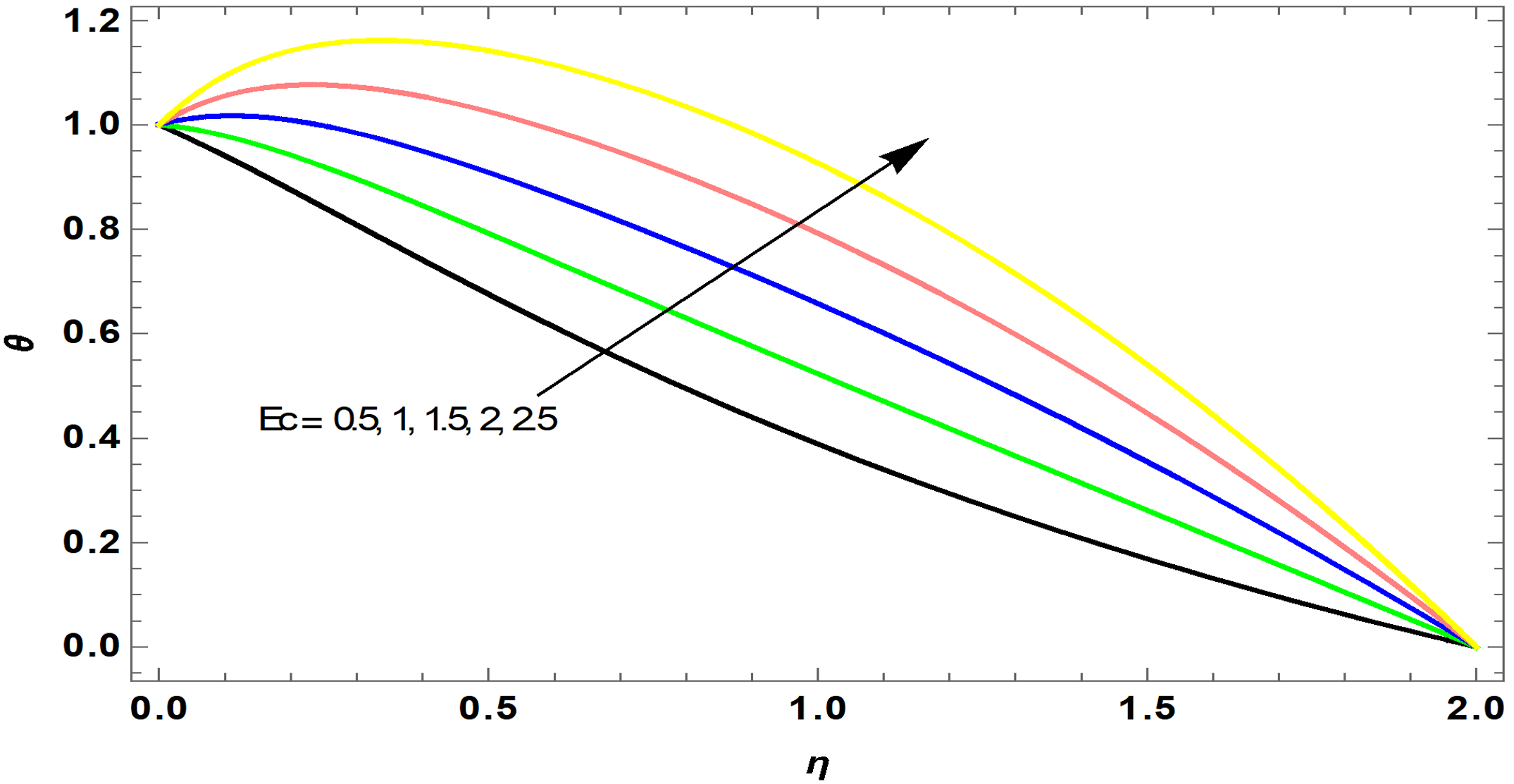Abstract
The porosity parameter serves as a pivotal factor in determining the resistance exerted by a porous medium on fluid motion, especially in magnetohydrodynamic (MHD) flows. This study presents a novel numerical investigation of the coupled influence of porosity, viscous dissipation, and Joule heating on both momentum and thermal boundary layers over a porous surface. The results demonstrate that increasing porosity enhances medium permeability, thereby reducing hydrodynamic drag and intensifying the velocity gradient near the stagnation region. Conversely, lower porosity impedes fluid penetration, resulting in diminished velocity and a compressed boundary layer structure. While the direct impact of porosity on thermal transport is minimal, its interaction with dissipative effects leads to subtle modifications in temperature distribution. The graphical and quantitative findings underscore the importance of fine-tuning the porosity parameter to regulate flow resistance and thermal behaviour in advanced MHD systems. The methodology employed based on robust numerical simulations offers a comprehensive framework for analysing porous flow dynamics in engineering and energy applications, highlighting the novelty of integrating complex interdependencies between porosity and thermophysical mechanisms.
Keywords
porosity parameter
magnetohydrodynamic (MHD) flows
viscous dissipation
joule heating
numerical simulations
Data Availability Statement
Data will be made available on request.
Funding
This work was supported without any funding.
Conflicts of Interest
The author declares no conflicts of interest.
Ethical Approval and Consent to Participate
Not applicable.
Cite This Article
APA Style
Govindan, V. (2025). Heat and Momentum Transfer in MHD Boundary Layer Flow with Radiation and Heat Source/Sink Effects. International Journal of Thermo-Fluid Systems and Sustainable Energy, 1(1), 39–45. https://doi.org/10.62762/IJTSSE.2025.817838
Publisher's Note
ICCK stays neutral with regard to jurisdictional claims in published maps and institutional affiliations.
Rights and Permissions

Copyright © 2025 by the Author(s). Published by Institute of Central Computation and Knowledge. This article is an open access article distributed under the terms and conditions of the Creative Commons Attribution (CC BY) license (
https://creativecommons.org/licenses/by/4.0/), which permits use, sharing, adaptation, distribution and reproduction in any medium or format, as long as you give appropriate credit to the original author(s) and the source, provide a link to the Creative Commons licence, and indicate if changes were made.


 Submit Manuscript
Edit a Special Issue
Submit Manuscript
Edit a Special Issue

 Copyright © 2025 by the Author(s). Published by Institute of Central Computation and Knowledge. This article is an open access article distributed under the terms and conditions of the Creative Commons Attribution (CC BY) license (https://creativecommons.org/licenses/by/4.0/), which permits use, sharing, adaptation, distribution and reproduction in any medium or format, as long as you give appropriate credit to the original author(s) and the source, provide a link to the Creative Commons licence, and indicate if changes were made.
Copyright © 2025 by the Author(s). Published by Institute of Central Computation and Knowledge. This article is an open access article distributed under the terms and conditions of the Creative Commons Attribution (CC BY) license (https://creativecommons.org/licenses/by/4.0/), which permits use, sharing, adaptation, distribution and reproduction in any medium or format, as long as you give appropriate credit to the original author(s) and the source, provide a link to the Creative Commons licence, and indicate if changes were made. 